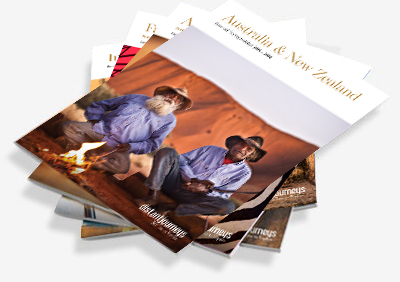INDIA FAQ’s
 Find the answers to some of the most frequently asked questions from our customers
Find the answers to some of the most frequently asked questions from our customers
-
Is there a time difference?
Delhi GMT +5½ hrs.
-
What is the currency?
Indian Rupee
-
What will the weather be like?
Weather patterns around the world are becoming less predictable. However, as a general guide, during the main travel season to India, between October and March, the days tend to be mild and sunny with comfortable cool evenings. We recommend checking up-to-date weather forecasts before you travel.
-
What clothing should I take to India?
Dress for our tours is generally relaxed and informal during the day, dressing to suit the weather conditions and the activity you are undertaking. It’s likely there will be occasions when exploring you’ll be walking on uneven surfaces, so we recommend sturdy and comfortable walking shoes. Wearing layers of clothing means it’s much easier to deal with potentially varied weather conditions and it’s always advisable to carry a waterproof. Any included evening dinners are also informal, with smart casual dress being the norm. We would also recommend taking good insect repellent, a high factor sun-screen lotion and a hat for protection from the sun.
It is always worth being aware of local customs when visiting sacred places. As a general rule, when visiting such places, it is recommended that arms and legs are covered. Women may also wish to take a shawl to cover their shoulders and all visitors should wear long trousers, skirts or shorts that reach below the knee. Taking off your shoes is also a prerequisite before entering many sacred places. Indians adopt a very conservative standard of dress and we suggest dressing modestly. For our safaris in Ranthambore National Park, we recommend layered clothing including something warm as it can be cold on early morning drives. If you have them, binoculars will provide a great opportunity for closer wildlife viewing.
-
What is the best way to pay for things in India?
Across all major hotels, Visa and Mastercard credit cards will be accepted and we recommend advising your bank of your travel plans so you do not encounter potential problems when trying to use your cards.
In India, cash withdrawals are limited to R10,000 (approx. £110) per day and you cannot obtain Indian currency before arrival in the country. There are occasional problems withdrawing cash from ATMs, so it is worth taking some sterling or US dollars that can be changed locally at money exchanges. Don’t forget your tour manger will be on hand to help you find the best places to exchange your money. When you change money, ask for some small bills (Rs 10s and Rs 20s) and keep these separate from the larger ones, so that they’re readily accessible.
You may also wish to consider a currency card to buy currency and lock in a great exchange rate before you travel. Distant Journeys recommends Revolut, a digital banking app which offers a pre-paid physical or virtual currency card. It is also simple to apply for, set up and use.For more information on the Revolut Currency Card, please click here
-
How much should I tip in India?
Unlike the UK, tipping is very much a way of life in India. We have included a number of gratuities into your tour, although for your Tour Guide, Drivers and assistants, suggested tipping amounts are as follows
Escorted Tours
Tour Managers: INR200 – INR300 per person per day
Coach Drivers: INR100 – INR150 per person per day
Assistant: INR50 – INR100 per person per dayPrivate Tours
Guide: INR1,200 per day
Driver: INR600 per dayHoliday Extensions
Guide: INR500 per day
Drivers: INR300 – INR500 per day
Bell Boy: INR100 per hotel
Restaurants: INR300Note: As many our tours visit several areas across India, you may have more than one tour manager, coach driver and coach helper on your tour.
-
Do I need to renew my passport?
A valid ten-year British passport is required for all holidays, valid for a minimum of 6 months after your return date to the UK. When travelling to India you must also allow two blank pages for your visa. If you are not currently in possession of a valid passport please make sure you leave plenty of time before your holiday to apply for this document. Our recommendation is that you should apply at least three months before your holiday.
-
Will I need a visa to enter India?
You are required to obtain an e-Tourist Visa (e-TV) before travelling. You can apply online for your visa within 30 days of travel on the government of India’s e-Tourist Visa website
The costs for the e-TV is currently $25.00USD.
Alternatively, if you would prefer to have the visa process managed by an expert visa company, we recommend The Travel Visa Company.
For more information on passport information and entry requirements please visit the Government Passport Office website www.gov.uk/browse/abroad/passports and the Foreign Office website: www.gov.uk/foreign-travel-advice
Please note entry requirements may change and it is your responsibility to ensure you are in possession of all necessary travel, passport, visa and other entry requirements before departure. All costs incurred in obtaining such documentation must be paid by you. We regret we cannot accept any liability if you are refused entry onto any transport or into any country due to failure on your part to obtain and carry all required documentation.
The information provided is for British citizens only. Holders of a British Subject passport, non-British citizens and holders of a passport endorsed in any way should check immigration requirements with the relevant embassy or consulate of the country to be visited, as should clients with dual nationality or renounced citizenship.
-
Do I need to have any vaccinations?
Health facilities, hygiene and disease risks vary worldwide. You should take health advice from your GP or local travel clinic about your specific needs as early as possible and ensure that vaccinations or preventative measures are taken early enough (which may be a month or more prior to departure) to be fully effective by the date of travel. For more information on health and vaccinations please visit the Foreign Office website www.gov.uk/foreign-traveladvice and NHS Travel Vaccinations website on: https://www.nhs.uk/conditions/travel-vaccinations/
Advice may change and you should check the most up to date position with your GP or local health / travel clinic in good time before departure.
-
I’ve heard that Gurjarat is a dry state. Will I be able to purchase alcohol?
When travelling on our Indian Wildlife Adventure, you will travel through the Indian state of Gujarat, spending a total of 5-nights in the state. Gujarat, is a dry state however, the government of Gujarat, will issue online liquor permits to foreign tourists during their visit to the state. These permits are valid for 7-days and during this period, customers may purchase up to:
1) One 750ml bottle of hard liquor – whiskey/gin/rum/vodka etc
2) Three bottles of wine
3) Ten 650ml bottles of beerFor your convenience, Distant Journeys has included the cost of these permits and your local guide will assist you in applying for the permit once in India.
BOOK WITH CONFIDENCE
Award-winning Holidays
Distant Journeys has won 23 awards over the last seven years, at the British Travel Awards, and we have been awarded Feefo’s highest Platinum Trusted Rating for customer satisfaction.
Guaranteed Price Promise
Know you are paying the best price for your holiday with our Price Promise. We never offer last minute discounts and we guarantee the earlier you book the better the offer you’ll receive.
100% Financial Protection
Book in the confidence your money is 100% safe. All Distant Journeys holidays are fully bonded by the Civil Aviation Authority (ATOL number 10913) or ABTOT (number 5427).
ORDER YOUR BROCHURES TODAY

Planning your next holiday? Let Distant Journeys give you some travel inspiration.
There are three easy ways to request your brochures – just click on your preferred option below:
online brochures |
your brochures |
brochures by post |
CUSTOMER REVIEWS






